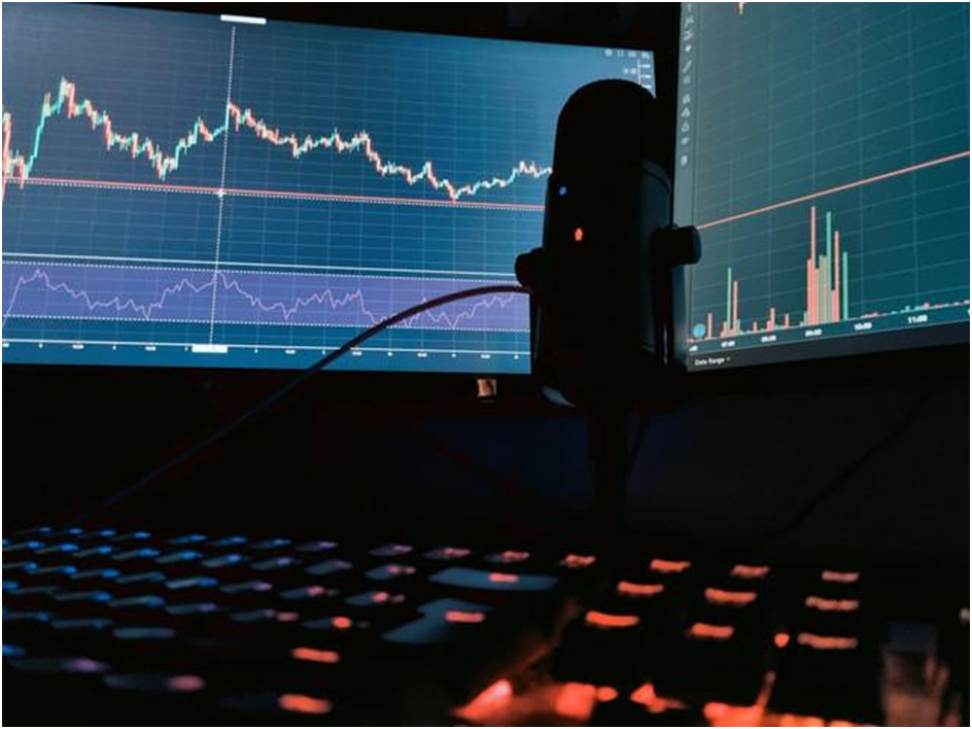Who Qualifies for Margin Trading Facility?
Margin trading facilities are typically extended to individuals who meet specific criteria set by financial institutions or brokerage firms. One of the primary requirements is a strong credit profile and a history of responsible financial behavior. Lenders often look for individuals with a good credit score and a track record of timely payments on loans and other financial obligations.
Moreover, qualifying for margin trading facility also entails demonstrating a suitable level of income and assets. Financial institutions typically assess an individual’s income stability and the value of their assets to determine their eligibility for utilizing margin trading services. Additionally, applicants may need to provide evidence of their investment knowledge and experience to ensure they have the capacity to engage in margin trading responsibly.
Eligibility Criteria for Margin Trading Facility

Download our stock trading app today to stay updated on the latest market trends and make informed investment decisions. Take control of your portfolio with real-time updates and personalized alerts.
To qualify for a margin trading facility, individuals must meet specific criteria set by financial institutions. One of the primary requirements is typically a minimum age limit, often set at 18 or 21 years old. Additionally, applicants are usually expected to have a good credit history and demonstrate a certain level of financial stability to mitigate the risks associated with margin trading.
Moreover, financial institutions may consider the individual’s investment knowledge and experience before granting access to a margin trading facility. Demonstrating an understanding of the risks and implications of leveraging positions through margin trading is crucial for eligibility. In some cases, institutions may require applicants to undergo certain assessments or provide documentation to validate their financial literacy and ability to manage margin accounts effectively.
Understanding the Requirements for Margin Trading Facility

To be eligible for margin trading facility, individuals must meet certain criteria set by financial institutions. These requirements typically include maintaining a minimum account balance, possessing a good credit score, and demonstrating a history of responsible financial behavior. Additionally, applicants may need to undergo a thorough assessment of their risk tolerance and investment knowledge to ensure they can handle the complexities of margin trading.
Moreover, prospective users of margin trading facility must understand and acknowledge the risks associated with leveraging their investments. Financial institutions emphasize the importance of having a clear understanding of how margin accounts work, the potential consequences of margin calls, and the fluctuations in market conditions that can impact their investment portfolio. By meeting these requirements and possessing a comprehensive understanding of margin trading, individuals can better position themselves to utilize this financial tool effectively.
Key Factors for Accessing Margin Trading Facility
When considering accessing a Margin Trading Facility, several key factors play a crucial role in determining eligibility. An individual’s creditworthiness and financial stability are fundamental aspects that financial institutions assess before granting margin trading privileges. A strong credit history and a stable income source are typically required to demonstrate the ability to repay borrowed funds and manage potential risks associated with margin trading.
Moreover, the value and quality of the securities or assets one intends to use as collateral also significantly influence the approval of a margin trading facility. The adequacy of the collateral in relation to the amount of margin credit requested is a critical factor. Financial institutions carefully evaluate the market value, liquidity, and volatility of the assets offered as collateral to ensure they meet the required standards for margin trading.
Demystifying the Process of Margin Trading Facility Approval
Margin trading facility approval can sometimes seem like a complex and daunting process for individuals looking to access this service. It involves a thorough assessment of various factors to ensure that the applicant meets the necessary criteria set by the financial institution. The first step typically involves submitting an application along with relevant documentation such as financial statements, credit history, and trading experience.
Once the application is received, it undergoes a detailed review by the financial institution’s team of experts who assess the applicant’s financial stability, risk tolerance, and investment knowledge. The approval process may also involve a face-to-face meeting or phone discussion to further evaluate the applicant’s understanding of margin trading and their ability to manage the associated risks. Overall, demystifying the process of margin trading facility approval requires a comprehensive understanding of the criteria and factors considered by financial institutions to grant this privilege to eligible individuals.
Exploring the Availability of Margin Trading Facility
The share market is a dynamic platform where investors buy and sell stocks. To stay updated with real-time market trends and make informed decisions, download the share market app today!
Margin trading facility, a popular financial tool among investors, is widely available in various financial markets across the globe. Brokers and financial institutions offer margin trading services to eligible individuals who meet specific criteria. This facility allows investors to leverage their investments and potentially increase their returns by borrowing funds to trade securities.
Availability of margin trading facility depends on the regulations of the respective financial market and the policies of the brokerage firms. Investors who are interested in utilizing margin trading must approach authorized brokers or financial institutions that offer this facility. It’s essential for investors to understand the terms and conditions associated with margin trading, including the risks involved, before engaging in such activities.
Determining the Suitability for Margin Trading Facility
Explore the world of Online Share Trading with HDFC Securities. Buy and sell stocks, mutual funds, and more with ease and convenience from the comfort of your home.
To assess the suitability for margin trading facility, individuals need to consider their financial situation, investment experience, and risk tolerance. It is crucial to have a clear understanding of the risks associated with margin trading, as well as the potential rewards. Those with a strong financial foundation and a high risk tolerance may find margin trading suitable for their investment goals.
Moreover, having a well-thought-out investment strategy and the ability to monitor market conditions regularly are essential factors in determining suitability for margin trading facility. Individuals must be prepared for the possibility of margin calls and be capable of managing their investments effectively during periods of market volatility. Ultimately, a thorough assessment of one’s financial goals and risk tolerance is key in determining whether margin trading facility is a suitable option.
Factors Influencing the Approval of Margin Trading Facility
Invest in mutual funds online through our user-friendly app. Take advantage of our secure platform and start building your investment portfolio today. Invest in mutual funds online with ease and convenience.
When seeking approval for a margin trading facility, several key factors play a crucial role in influencing the decision-making process. One significant aspect is the individual’s creditworthiness and financial stability. Lenders typically assess an applicant’s credit score, debt-to-income ratio, Debt Consolidation, and overall financial health to determine their ability to manage margin trading risks effectively. Demonstrating a strong track record of responsible financial management and a stable income stream can positively impact the approval decision.
Another important factor that influences the approval of a margin trading facility is the individual’s investment knowledge and experience. Lenders consider whether the applicant has a solid understanding of margin trading concepts, strategies, and risks. An investor who demonstrates a good grasp of these factors and has experience in trading securities is more likely to be approved for a margin trading facility. Additionally, a proven history of successful trading and risk management practices can enhance the chances of approval, as it showcases the applicant’s ability to navigate the complexities of margin trading.
Benefits of Margin Trading Facility for Eligible Individuals
Margin trading facility provides eligible individuals with the opportunity to leverage their investments and potentially increase their returns. By borrowing funds to invest in securities, traders can amplify their purchasing power and take advantage of market opportunities that may not have been accessible otherwise. This increased buying power allows investors to diversify their portfolio and potentially generate higher profits in a shorter period of time.
Moreover, margin trading facility enables eligible individuals to engage in short selling, a strategy where investors can profit from a decline in the price of a security. This ability to profit from both rising and falling markets can enhance the overall flexibility and profitability of an investor’s portfolio. Additionally, margin trading facility can provide investors with greater liquidity, as they can access additional funds quickly and efficiently to capitalize on market trends and investment opportunities.
Challenges Faced by Applicants of Margin Trading Facility
Navigating the application process for margin trading facility can be a daunting task for many individuals. One of the significant challenges faced by applicants is meeting the stringent eligibility criteria set by financial institutions. Requirements such as a minimum net worth, credit score, and investment experience can act as barriers for those seeking to access margin trading.
Moreover, the approval process for margin trading facility can be time-consuming and complex, often requiring detailed documentation and thorough scrutiny of the applicant’s financial background. This rigorous evaluation process can deter potential applicants and lead to frustration among individuals seeking to leverage margin trading for investment opportunities.
Have A Look :-
- Which Asset Cannot Be Depreciated?
- Is Telecommunications Equipment A Good Career Path?
- Which Web3 Job Should You Apply For? Top Web3 Jobs To Choose

